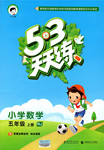题目内容
| 完形填空 | ||||
Yesterday evening I was watching the evening news on TV. The news was about a prize for sci entific entific discoveries. The 1 said something that caught my 2 . "All great discoveries," he said, "are made by people between the ages of 25 and 30." Being a little over 30 myself, I wanted to 3 with him. Nobody wants to think that he has passed the age of making any 4 . The next day I went to the public  library, library, spending several hours, and 5 to find the ages of famous people and their discoveries. The announcer was right! First, I looked at some of the 6 discoveries. One of the earliest, the famous one that 7 that bodies of different weights 8 at the same speed, was made by Galileo when he was 26. Madam Curie started her research that led to a Nobel Prize when she was 28. Einstein was 26 when he 9 his world-changing Theory of Relativity. Well, 10 of that. Yet I wondered if those "best years" were true in other 11 . Then how about this in 12 ? Surely it needs the wisdom of 13 to  make a good leader. Perhaps it make a good leader. Perhaps it does, but look when these people 14 their careers. Winston Churchill was elected to the House of Commons at the age of 26. Abraham Lincoln 15 the life of a country lawyer and was elected to the government at what age? Twenty-six! But why don't best years come after 30? After 30, I 16 , most people don't want to take risks or try new ways. Then I thought of people 17 Shakespeare and Picasso. The 18 was writing wonderful 19 at the late age of 50, 20 the latter was still trying new ways of painting when he was 90! Perhaps there is still hope for me. | ||||
|
1-5: ACABD 6-10: BBDCA 11-15: ABACD 16-20: ACDDB

练习册系列答案
 53天天练系列答案
53天天练系列答案
相关题目
 .
. Cell phone usage has exploded over the past decade and continues to rise. Nearly 200 million people in the United States have cell phones and there are 67 over one billion users worldwide. That means there are a lot of phones 68 their frequencies over the airwaves at any given time.
Cell phone usage has exploded over the past decade and continues to rise. Nearly 200 million people in the United States have cell phones and there are 67 over one billion users worldwide. That means there are a lot of phones 68 their frequencies over the airwaves at any given time. particular
D. considerate
particular
D. considerate